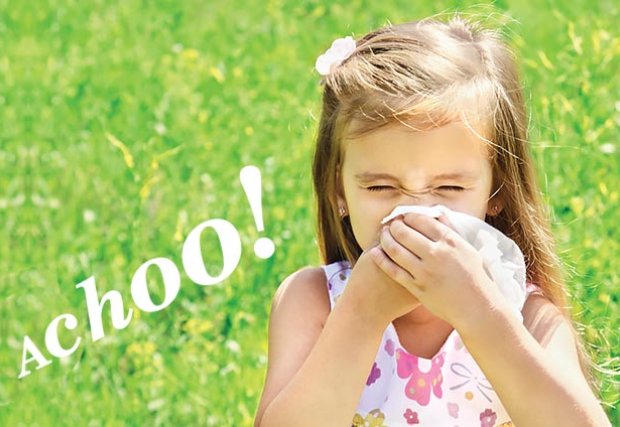“Distinguishing between a cold and an allergy is one of the hardest things for parents,” says pediatrician Eve Switzer, MD. “It’s especially tough for children ages 3 and under because they get sick with colds more often.”
To help differentiate the two, Dr. Switzer notes that with colds, there tends to be more fever and a thicker, more discolored nasal discharge. “Children with allergies may look good overall, and the drainage coming from their nose tends to be clearer. One of the things I ask my young patients is if they have the runny, itchy, sneezies,” Dr. Switzer says.“ If they do, this could suggest an allergy.”
If an allergy is suspected and the child is six months or older, Dr. Switzer generally recommends treating their symptoms with an over-thecounter antihistamine. (For children under six months, parents should consult their pediatrician.) “If you try an antihistamine and it doesn’t work, then it’s probably a cold,” she says.
“I only recommend allergy testing if we have trouble getting the symptoms under control with the medications we usually use,” Dr. Switzer says. Along with an antihistamine— which is usually the first recommended medication— a nasal steroid may sometimes be prescribed, or a leukotriene inhibitor may be recommended to further relieve symptoms.
“If a child has more than one condition at once—such as allergies, asthma and eczema (a condition that makes the skin red and itchy)—I might also recommend allergy testing sooner,” Dr. Switzer notes. When allergy tests are positive, food sensitivities tend to be more common in children ages 4 and younger, whereas for older kids, allergies tend to be more environmental, Dr. Switzer says.
Finally, if allergies get worse during certain times, as with some seasonal allergies, Dr. Switzer says that switching the brand of medication can sometimes provide added relief.
Bug off!
Along with seasonal allergies, bug bites and rashes can be summertime problems for kids. If you see concerning skin reactions, here are some guidelines from Dr. Switzer below.
Bug Bites:
Antihistamines or topical treatments like hydrocortisone cream can help relieve itching at home. Seek medical help right away if your child is having trouble seeing or breathing. Also, if redness is expanding quickly, streaks are moving up an extremity, or if the bite is associated with a temperature over 101 degrees, see a doctor immediately.
Rashes:
If the rash is “blanchable”— which means it gets lighter in color when you push on it — that’s a good sign. If it doesn’t fade under the pressure of your finger, especially if it’s accompanied by a fever, call the doctor. Also consult the doctor for rashes associated with blisters and pustules (small, fluid-filled bumps).
Eve Switzer, MD, is featured in a number of pediatric health videos on our Childhood Conditions page here.

